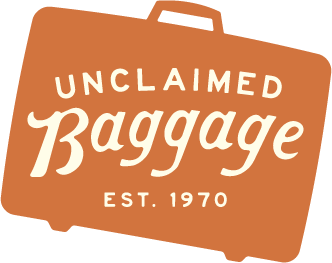
Doyle Owens loved radios––specifically ham radios. We don’t use them much these days; most of us don’t even know what they are (for the uninitiated: “ham” is slang for “amateur” radio, and its enthusiasts make a hobby of connecting with each other over radio frequencies). In the ‘60s and ‘70s, it was the equivalent of a group FaceTime call, sans face.
Doyle, call sign K4MUR, went to bed early so he could be on the radio by 4:30am to talk to friends in different time zones all around the world. Some were friends from childhood, friends from his days of service in the Korean War. Most of his friends, however, were friends he’d never met in person, who he knew only from the airwaves. Many of them knew him more intimately than the friends and neighbors he saw every day.

Those mornings were his window into the world outside Scottsboro, Alabama, population 9,324 (in 1970), where he’d been working in insurance since shortly after the Korean War. The insurance business paid, but it bored him to tears. Creative energy ran in his blood: during the Great Depression, his father ran a general store on wheels in rural Alabama, which he used to barter for much needed goods. Doyle knew he was destined for more, but he didn’t know what.
One day, a ham radio friend who worked for Trailways Bus Company in Washington, D.C. let Doyle and his friends in on an unusual problem: the bus line had an accumulating pile of unclaimed bags that they didn’t know what to do with. Doyle’s ears perked up. “How much would you sell it for?” he asked his friend. “Well, I’m not sure,” his friend said. They settled on three hundred dollars.
That afternoon, Doyle borrowed his father’s ’65 Chevy pickup truck and stopped at his father-in-law’s house on the way out of town to borrow three hundred dollars. When he returned, he and his wife Mollie Sue set to unpacking the massive load of luggage. They rented a house on the outskirts of town and set up card tables inside to display the contents of the luggage. Outside, a homemade storefront sign read “Unclaimed Baggage”. That Saturday the doors opened for business, and by the end of the day the tables were empty.

The rest isn’t exactly history. It took many more loads of luggage, many more loans, many more long days and short nights before Doyle’s business grew into the worldwide, fifty-year-old retail phenomenon it is today. But it all started with an idea.
No one knows where they come from, ideas. What we do know is that the right environment––the kind populated by dear friends, clear air, long drives down country roads and the like––clears space for them to land.
The current moment, plagued by uncertainty, financial distress and, well, actual plague, could be seen as less conducive than ever to creativity. Ernest Hemingway once wrote that worry destroys the ability to create, and ill health, which produces worry, attacks your subconscious and destroys your reserves. If we all, like Hemingway, had the ability to combat the malaise with all the fishing, sailing and boxing our hearts desire, we might not be in such a tough spot.
Some of you, like Doyle in 1970, may be stuck in more ways than one. The career you’ve worked so hard to build has ground to an unexpected halt, and now you’re alone, face to face with the great demon of the modern era: your own thoughts.
You’ve likely been told recently that now is the time to finally start that project you’ve been putting off for so long. That may well be the case. But perhaps that pressure, the pressure to do more, is misdirected. Perhaps now, more than ever, is the time to do less, to embrace the stillness we so often and elaborately attempt to avoid and allow our minds to wander.
Social distance isn’t a dictate for loneliness. For those of us mindful enough to recognize it, the restriction of distance presents a rare opportunity to invest in the relationships that nourish us most with newfound intention and take stock of the resources we already have.
Because enterprise, ultimately, is a conscious choice. Doyle Owens, like his father before him, understood that well. In the early morning stillness of a tiny “ham shack”, he found the patience to weather his circumstances and the audacity to refuse them control of his future.
That idea, the idea, might be circling overhead, waiting for clearance to land, but you haven’t been looking. It might be on the other end of a call, a thousand miles away, but you haven’t been listening. It’s not too late to start.
- Ben Owens, grandson of Doyle Owens

